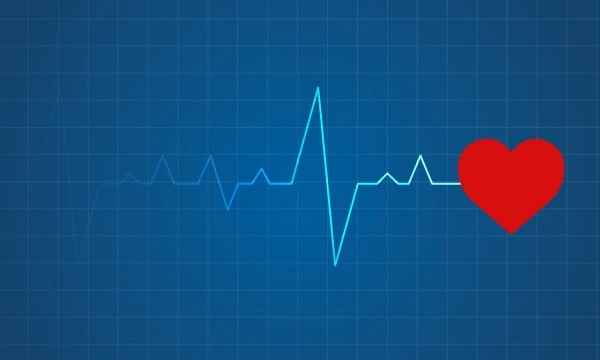How To Prepare For An ECG?

Medically Reviewed By
Dr Divya Rohra
Written By Komal Daryani
on Aug 13, 2022
Last Edit Made By Komal Daryani
on Jan 9, 2025

Beating a healthy heart is second next to impossible. Take care of your heart to be as fit as a fiddle for years. If your heart is not pumping appropriately, you are more at risk of getting into the grip of heart disorders like heart attack and stroke.
Maintaining a healthy balance has become more challenging, thanks to the sedentary lifestyle we follow. It should be your topmost priority because it is no rocket science. Swapping good eating habits for bad is enough and can do wonders. Keeping a tab on it with regular checkups is equally significant to detect problems early.
Your doctor may ask you for Periodic Heart Checkups to track the status of every beat. ECG Test is a test for ECG. Before you know how to prepare for an ECG, it is necessary to understand what it is, the types of tests, and what can detect. So, let's unfold everything layer by layer.
About ECG Test:
ECG Test stands for Echocardiogram Test, which records electrical signals of the heart to find irregularities and heart problems (if any). It gives your doctors a snapshot of your heart activity to detect defects and provide treatment accordingly.
This painless and non-invasive procedure looks at the Heart Rhythm, Heart Rate, Heart Axis, and Rhythm Disturbance.
Signs You May Need An ECG:
If your body is showing any of the above signs, it’s a wake-up call to go for ECG Checkup at the earliest.
3 Main Types Of ECG Tests Are:
- Resting ECG: It’s a fast and non-invasive procedure carried out when a patient comfortably rests. It helps detect arrhythmias, left ventricular hypertrophy, evidence of coronary heart disease, bundle branch blocks, and other heart abnormalities. No movement is allowed during the examinations and hardly takes 5-10 minutes.
- Stress Or Exercise ECG: Carried out while you are on a treadmill or exercise bike to monitor the heart’s electrical rhythms. It puts slight stress on your heart to make it work progressively harder to measure blood pressure and monitor symptoms like discomfort in the chest or fatigue.
- Ambulatory ECG: Also called Holter Monitor, it carries out by attaching electrodes to your chest to record a brief record of cardiac electrical activity. It monitors the heart and detects abnormal heart rates and rhythms.
The type of ECG you undergo will depend on your symptoms and the heart problems you have been experiencing. Accordingly, the ECG Test Price will vary, which you can confirm with your healthcare professional.
Need For ECG Screening:
- The procedure is non-invasive, safe, painless, and free with no known risks.
- It is highly detailed and informative that helps examine several heart disorders.
- Help doctors understand your heart health and activity and provide suggestions and treatments accordingly.
Abnormalities That ECG Test Can Detect:
- Arrhythmias
- Coronary heart disease
- Heart attacks
- Cardiomyopathy
- Pericarditis or Myocarditis
- Heart structure changes
- Blood and oxygen supply to the heart
Are you having an ECG? Here's how you need to prepare for the test.
It requires no special preparations, but:
- Avoid drinking cold water right before the test.
- Do not talk during the procedure.
- You must be ready for the equipment like electrodes attached to your body during the examination.
- Don’t do intense exercise that could increase your heart rate before the test.
- Remove metallic objects like jewellery to avoid interference with a machine.
- Shave off the chest area where the electrodes will be placed.
- The examination will take only a few minutes, during which you need to lie still without any material movement.
- Understanding the ECG procedure can minimize your hesitation and prepare you for the test.
- Understand the reasons your doctor may have ordered an ECG.
These are basic yet crucial things to consider before the ECG procedure. If you have doubts about the same or are on specific medication, make sure to have words with your healthcare professional to avoid all possible complications or problems during the procedure.
Procedure Of ECG:
Before The Examination:
Your doctor first asks you to change into a hospital gown and shave off the hair on the chest, so electrodes can be attached to your chest properly and help obtain accurate ratings. After that, you need to lie down in a comforting condition.
During The Procedure:
During the analysis, your healthcare professional will attach electrodes to your chest and limbs to record and display the heart's signals or activities to a connected computer screen.
After The Test:
There are no special post-test instructions, and you can continue your routine. If your reports show problems, your doctor may ask you for other tests to clarify the results.
Whether you have an inquiry for ECG Test Near Me or want to book ECG Test at Home in Delhi, Redcliffe Labs should be on top of your mind. Thanks to our experience and expertise, we excel in the domain and promise to provide satisfactory service and support.
Leave a comment
1 Comments
Ashok Kumar Bendi
Feb 18, 2024 at 5:35 PM.
my Ecg result shows 60to65...59if my Ecg I failed in Ecg test.. How to improve before going Ecg test
MyHealth Team
Apr 11, 2024 at 6:07 AM.
Hi Ashok, To prepare for your ECG test and possibly improve your heart rate, focus on staying hydrated, exercising regularly, managing stress, limiting caffeine, and eating well. These simple steps can help optimize your heart rate before your test.


